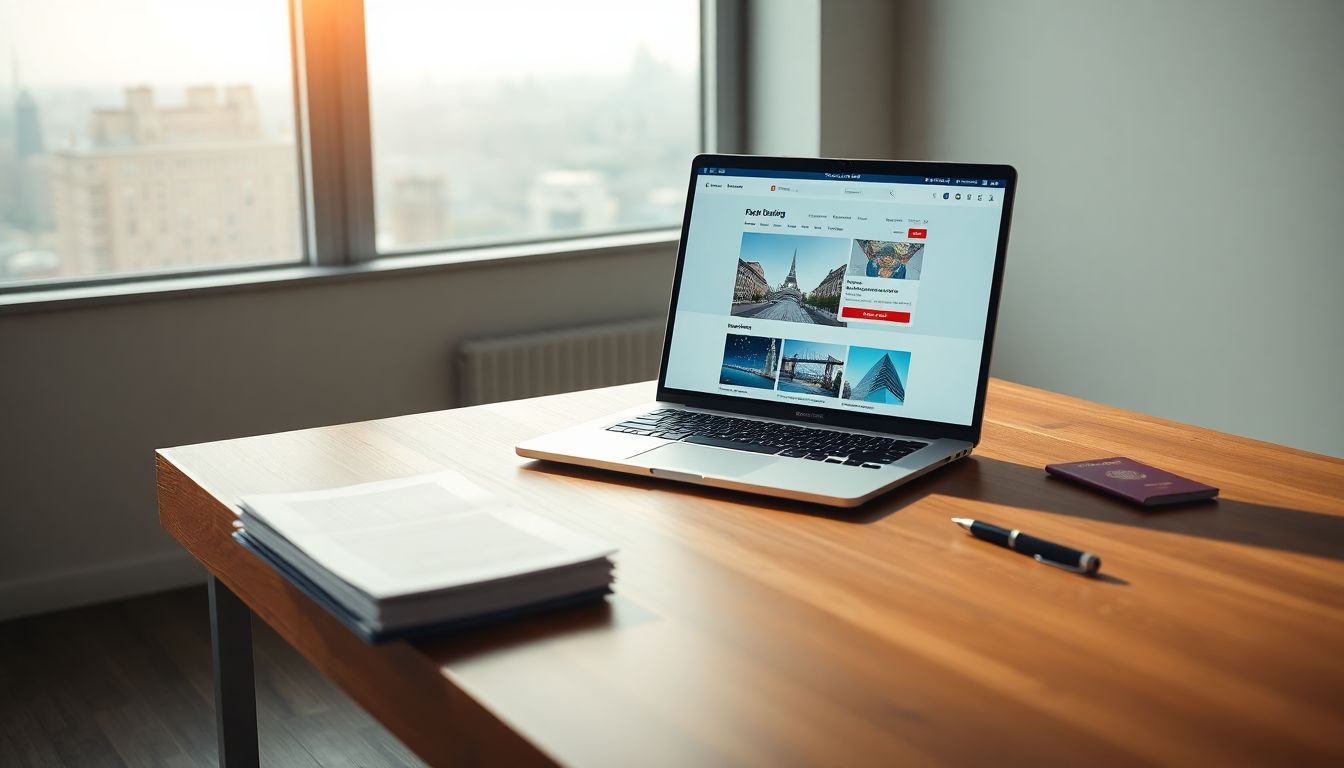
How to Open a Foreign Bank Account as a Nomad (Step-by-Step)
Imagine waking up in Bali, paying for a scooter rental in Indonesian Rupiah, and then booking a flight to Barcelona in Euros, all with ease. Nomadic life offers freedom, but managing money across borders can be a headache. Currency swings, tricky fund access, and high transfer fees are real challenges. Traditional banks often don't get the nomad life.
A foreign bank account can make finances simpler. It gives you flexibility and control. Ready to take charge of your global cash? This guide breaks down how to open a foreign bank account, step by step.
Why Open a Foreign Bank Account as a Nomad?
Having a bank account outside your home country offers big perks. It is useful for those living a location-independent lifestyle. Let's explore why this is a smart move.
Diversification and Risk Management
Putting your eggs in one basket is risky. Economic issues in your home country can hit your savings hard. A foreign account lets you hold different currencies. It guards against local money problems.
Actionable Tip: Research countries with stable governments and growing economies. Look at their financial history too. A solid country lowers your risk.
Easier International Transactions
Sending money across borders with a regular bank can be costly. Foreign accounts often mean lower fees and better exchange rates. This makes paying for things in different countries easier.
Real-World Example: Say you're a freelancer paying contractors in the Philippines, India, and Argentina. A foreign account can save you hundreds in transaction fees compared to using a U.S. bank each month.
Access to Better Interest Rates and Investment Opportunities
Some foreign banks offer great interest rates on savings. They also provide access to investments you can't get at home.
Data Point: Interest rates in some emerging markets can be significantly higher than in the US or Europe, providing an opportunity to grow your savings faster.
Choosing the Right Country and Bank
Picking where to bank is a big decision. Research is key to finding the right fit for your needs.
Factors to Consider When Choosing a Country
Think about a country's political stability. Economic strength matters, too. Check out banking rules and if you speak the local language. Don't forget about taxes; you might need a tax advisor. Access to your money is crucial, too.
Actionable Tip: Use resources like the World Bank and IMF to learn about a country's risk. Government websites often have economic data.
Researching Banks: Fees, Services, and Reputation
Do your homework on different banks. Compare fees for transactions and transfers. Look at the types of accounts they offer. Check if their online banking is easy to use. Read reviews to see what others say about customer service. A bank's reputation is important.
Real-World Example: Bank A in Singapore might have low fees but require a high minimum balance. Bank B in Estonia could have easy online setup, but limited customer support in English.
Understanding Banking Regulations and Tax Implications
KYC (Know Your Customer) and AML (Anti-Money Laundering) rules are important. You'll need to prove who you are and where your money comes from. Also, know the tax rules in the foreign country and your home country. A tax advisor can help with this.
Gathering the Necessary Documents
Getting your documents in order is vital. It speeds up the account opening process.
Identification Documents
You'll need a passport, driver's license, or national ID card. Make sure these are valid.
Actionable Tip: Get certified copies of your ID. A notary can verify these. Some banks need this.
Proof of Address
Showing where you live can be tricky as a nomad. A registered address, a virtual office, or a trusted friend's address can work.
Other Supporting Documents
Some banks want proof of income. A tax residency certificate might be needed. A letter from your current bank can help too.
Opening the Account: In-Person vs. Online
You can open a foreign account in person or online. Each way has its own steps.
Opening an Account In-Person
This means traveling to the country and visiting a bank. You'll fill out forms and show your documents.
Real-World Example: One nomad flew to Panama to open an account. She spent a week meeting with different banks. Her tip: Learn some Spanish beforehand!
Opening an Account Online
You can fill out an application on the bank's website. You'll upload documents and might have a video call to confirm your identity.
Actionable Tip: Make sure your internet connection is strong. Scan your documents clearly. Be ready for the video interview.
Managing Your Foreign Bank Account as a Nomad
Managing your account from afar takes planning. Stay secure and follow the rules.
Setting Up Online Banking and Security Measures
Choose a strong password for online banking. Use two-factor authentication for extra safety. Check your account often for strange activity.
Actionable Tip: Never share your password. Use a password manager to store them safely.
Transferring Funds and Managing Currency Exchange
Wire transfers are common, but can be expensive. Online platforms like Wise offer better rates. Crypto can be another option, but be careful of swings in value.
Actionable Tip: Compare exchange rates before you transfer money. Time your transfers to take advantage of favorable rates.
Staying Compliant with Regulations and Reporting Requirements
Understand the rules in the foreign country and your home country. Report your foreign accounts if needed. A tax advisor can guide you.
Conclusion
Opening a foreign bank account can seem hard, but it’s worth it for nomads. You gain flexibility, reduce risks, and simplify your finances. From choosing the right country to managing your account online, each step brings you closer to financial freedom. Don't wait; start exploring your options today!






0 Comments